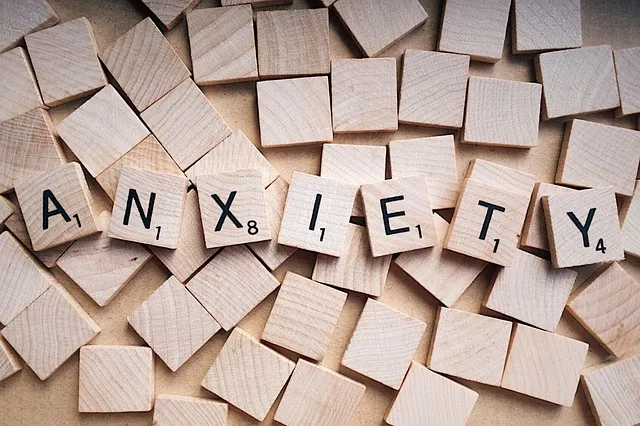Kaiser Denver's comprehensive stress management workshops address physical and psychological stressors, offering a holistic approach to well-being. These programs go beyond mental illness treatment, focusing on self-esteem, wellness coaching, and community support. With an absence of inpatient services, these workshops fill a gap in Denver's mental health landscape. Through interactive activities like mindfulness, meditation, and role-playing, participants learn practical emotional regulation strategies and social skills. An inclusive, nuanced approach caters to diverse needs, ensuring accessibility for crisis intervention. These workshops, combined with Kaiser's inpatient care, provide effective tools for stress mitigation, emotional well-being, and long-term mental health management.
Stress management workshops, like those offered by Kaiser in Denver, play a vital role in promoting mental well-being. This article explores how such programs can be designed and implemented effectively, addressing common stress triggers identified at Kaiser’s inpatient mental health facility. We’ll delve into strategies for creating inclusive environments, providing practical tools, and measuring success to ensure ongoing support for participants’ stress mitigation journeys. Discover how Denver’s Kaiser is revolutionizing mental health care through these comprehensive workshops.
- Understanding Stress: Unveiling Common Causes and Impact at Kaiser in Denver
- Designing Effective Workshops: Engaging Strategies for Mental Health Promotion
- Creating an Inclusive Environment: Accommodating Diverse Needs and Preferences
- Practical Techniques: Equipping Participants with Tools for Stress Mitigation
- Measuring Success and Long-Term Support: Evaluating Workshop Outcomes and Sustainability
Understanding Stress: Unveiling Common Causes and Impact at Kaiser in Denver

Stress management workshops play a pivotal role in empowering individuals to navigate life’s challenges with resilience. At Kaiser in Denver, understanding stress extends beyond recognizing its physical symptoms; it involves delving into the intricate web of common causes that manifest in our bustling modern world. Factors like demanding careers, family pressures, financial constraints, and social expectations all contribute to elevated stress levels, which, if unaddressed, can lead to severe mental health implications.
Kaiser Denver’s approach focuses on holistic well-being, encompassing not just the treatment of mental illness but also proactive measures to foster self-esteem improvement and mental wellness coaching programs. They recognize that breaking down the stigma associated with mental illness is crucial for creating a supportive environment where individuals feel comfortable seeking help. Through interactive sessions, workshops at Kaiser Denver aim to equip participants with effective coping strategies tailored to their unique needs, ultimately enhancing overall well-being in a vibrant community setting.
Designing Effective Workshops: Engaging Strategies for Mental Health Promotion

Effective stress management workshops require thoughtful design to engage participants and promote mental health. Incorporating interactive activities, such as mindfulness exercises and group discussions, can enhance Mental Health Awareness by teaching practical emotional regulation strategies. For instance, guided meditations or yoga sessions help individuals manage stress responses, while open dialogue facilitates the sharing of experiences, fostering a supportive environment.
Additionally, integrating Social Skills Training into workshops benefits participants’ overall well-being. Role-playing scenarios and team-building exercises can improve communication, empathy, and conflict resolution skills, all crucial aspects of navigating life’s challenges. Given that organizations like Kaiser in Denver offer inpatient mental health services, community-based workshops can serve as valuable complements, empowering individuals with coping mechanisms to support their long-term mental health journey.
Creating an Inclusive Environment: Accommodating Diverse Needs and Preferences

Creating an inclusive environment is a cornerstone of effective stress management workshops. This involves acknowledging and catering to the diverse needs and preferences of participants. In Denver, where Kaiser offers both inpatient and outpatient mental health services, organizing such workshops requires a nuanced approach. Understanding that individuals cope with stress differently, whether through quiet reflection or energetic engagement, ensures everyone feels valued and heard.
Implementing this includes offering various activities like mindfulness exercises, group discussions, and creative outlets. Additionally, providing options for pacing and participation fosters an environment of empathy building strategies. By embracing these diverse methods, workshops can enhance confidence boosting techniques, making them accessible to a broader range of individuals seeking crisis intervention guidance.
Practical Techniques: Equipping Participants with Tools for Stress Mitigation

Stress management workshops equip participants with practical tools to mitigate stress levels effectively. These sessions delve into various techniques, such as mindfulness exercises and breathing strategies, that have been proven to reduce anxiety and promote emotional well-being. By fostering emotional intelligence, individuals learn to recognize and manage their responses to stressful situations, enhancing their resilience.
Moreover, workshops may incorporate trauma support services and conflict resolution techniques, addressing underlying issues that contribute to stress. These methods empower participants with the skills to navigate challenging scenarios, improve interpersonal relationships, and cultivate a sense of calm amidst chaos. Workshops like these, offered in Denver or even at Kaiser’s inpatient mental health facilities, play a crucial role in arming individuals with the knowledge and resources needed to lead healthier, happier lives.
Measuring Success and Long-Term Support: Evaluating Workshop Outcomes and Sustainability

Measuring the success of stress management workshops is crucial for evaluating their impact and ensuring long-term benefits. This involves a multifaceted approach that goes beyond immediate satisfaction or attendance numbers. Post-workshop surveys can gauge participants’ perceived changes in stress levels, emotional well-being, and coping strategies. Following up with participants over time allows organizers to track the sustainability of these shifts, providing insights into the workshop’s effectiveness. For instance, a significant reduction in reported stress levels six months post-workshop could indicate successful Depression Prevention and Emotional Healing Processes.
Additionally, fostering a supportive community beyond the workshop sessions is essential for maintaining gains. This can be achieved through ongoing virtual or in-person support groups, where participants can continue to share experiences, offer encouragement, and exchange strategies for emotional healing processes. By integrating such long-term support structures, organizations like Kaiser (with its inpatient mental health services in Denver) can enhance the confidence-boosting aspects of these programs, ensuring participants remain equipped to manage stress effectively in their daily lives.
Kaiser in Denver’s stress management workshops are a comprehensive approach to mental health promotion, addressing common causes of stress and providing participants with practical tools for mitigation. By designing engaging sessions, creating inclusive environments, and offering sustainable support, these workshops empower individuals to navigate life’s challenges effectively. With a focus on long-term well-being, Denver’s Kaiser is setting an example for inpatient mental health care, demonstrating that proactive stress management can lead to profound and lasting positive changes.






